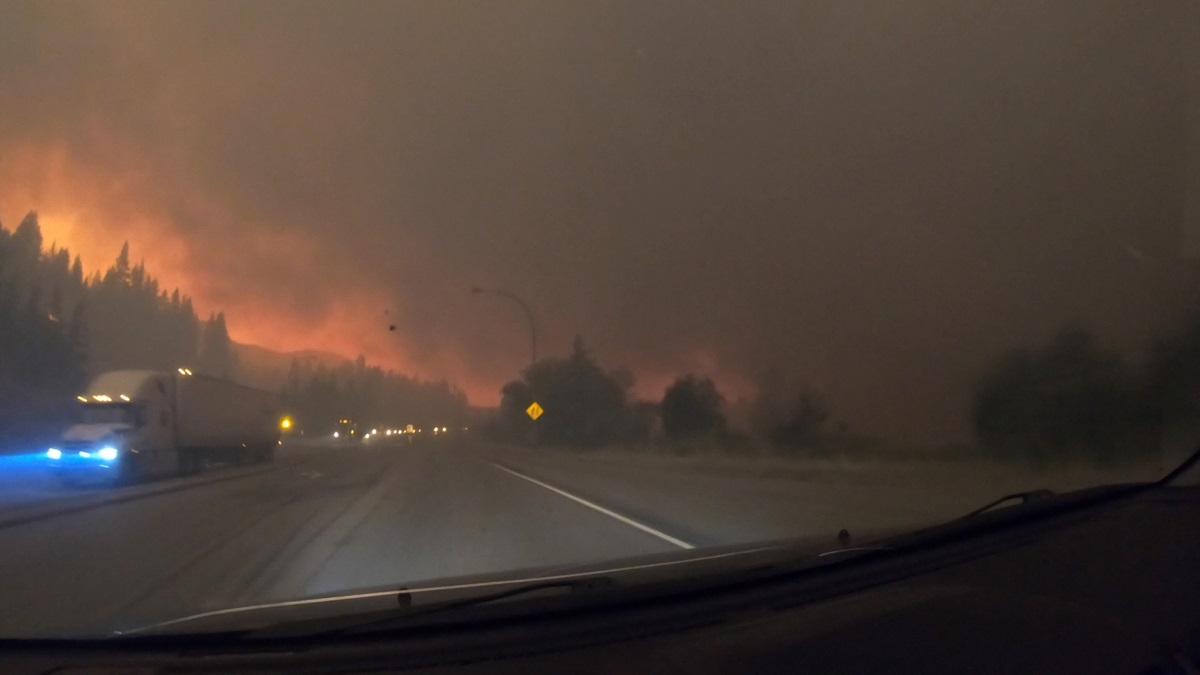Canada to deploy armed forces in British Columbia to tackle fast-spreading fires

Canada is sending armed forces to tackle fast-spreading wildfires in British Columbia, Prime Minister Justin Trudeau said on Sunday, as the western province deals with tinder-dry conditions and winds that have put more than 35,000 people under evacuation order.
The province imposed an emergency late on Friday, giving officials more power to deal with fire risks. By Saturday, more than 35,000 residents were under an evacuation order and another 30,000 were under an evacuation alert.
The McDougall Creek fire is centered around Kelowna, a city some 300 kilometers (180 miles) east of Vancouver with a population of about 150,000. But other blazes, exacerbated by severe drought, have been reported closer to the US border and in the US Pacific Northwest.
Ministers and government officials urged residents living in evacuation order zones to take immediate action in the interest of their own lives and that of the firefighters.
British Columbia Premier David Eby also imposed a ban on non-essential travel on Saturday in order to free-up accommodation for evacuees and firefighters. Authorities urged people to avoid traveling to fire zones and operate drones to take pictures, which they said would hamper the work of firefighters.
Officials have not yet given any estimates of the total number of buildings destroyed.
Trudeau in a tweet said that the federal government has agreed to send in assistance following a request from the B.C. government.
Forest fires are not uncommon in Canada but the spread of blazes and disruptions underscore the severity of its worst wildfire season yet.
The fires have drained local resources and drawn in federal government assistance as well as support from 13 countries. At least four firefighters have died in the line of duty.
About 140,000 square km (54,054 square miles) of land, roughly the size of New York state, have already been scorched nationwide, with smoky haze extending as far as the US East Coast. Government officials project that the fire season could stretch into autumn due to widespread drought-like conditions.
Skies on fire
Some 2,000 km to the north, a wildfire burning out of control in Yellowknife, the capital city of Northwest Territories, had triggered evacuations of almost all of its 20,000 residents last week.
Currently, the fire is not expected to reach city limits by the end of the weekend, officials said, with some rain and cooler temperatures helping to slow its progress.
Krista Flesjer, who evacuated from the city with her dogs, said it was a rough trip.
"I was afraid of getting caught in the fires that were coming across the road," she said.
For Flesjer the main worry is whether her house, which is just two years old, would survive.
In B.C., The TransCanada highway was closed near Chase, around 400 km northeast of Vancouver, and between Hope, 150 km east of Vancouver, and the village of Lytton. The highway is the main east-west artery used by thousands of motorists and truckers heading to Vancouver, the country's busiest port.
Kip Lumquist, who works at a gift shop in Craigellachie, a tourist spot on the highway, said she saw a lot of devastation over the past week.
"It was crazy. We couldn't see the hills, the mountains, the trees, anything, probably [for] two and a half days," Lumquist said. "I drive a white vehicle, and when I walked out to get in my car...it's just black...It's devastating to the community." — Reuters



